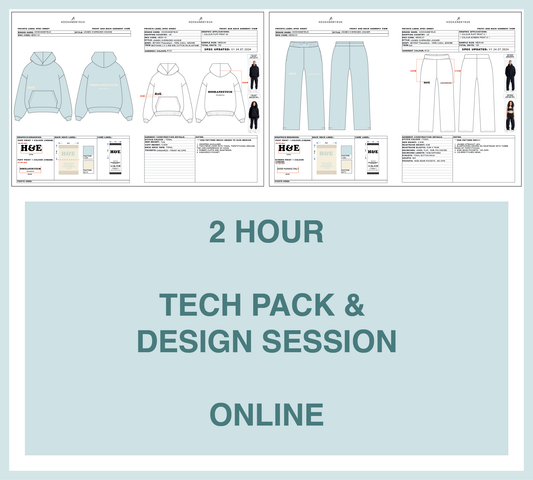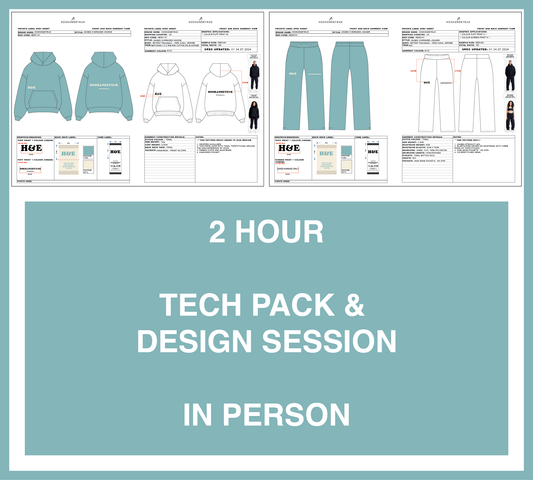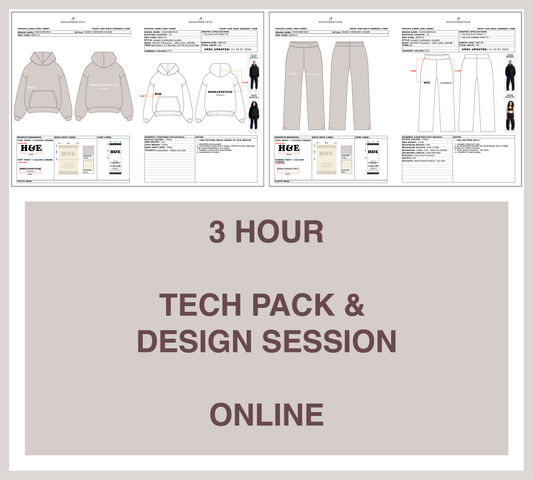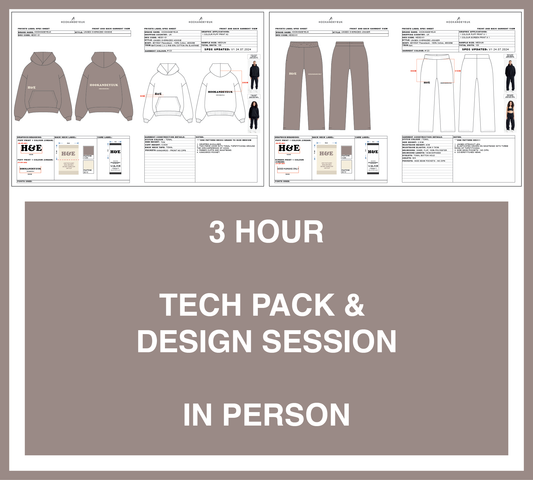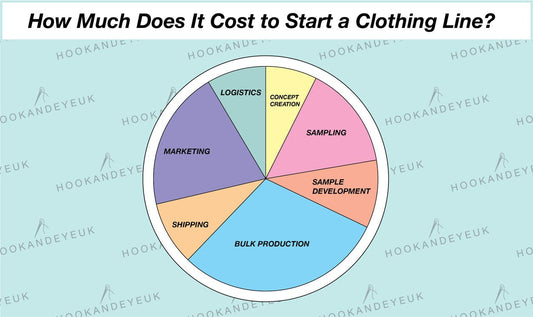In the competitive world of fashion retail, brands are constantly seeking efficient ways to bring products to market while maintaining quality and profitability. Two popular approaches have emerged as dominant strategies (mainly for lower level value brands): white label and private label clothing. While both involve working with third-party manufacturers, they represent fundamentally different business models with distinct implications for retailers, brands, and consumers.
Understanding the difference between these two approaches is crucial for making informed business decisions in the clothing industry. Whether you’re an established brand looking to expand your product line or a startup entering the market, choosing the right manufacturing approach can significantly impact your brand identity, market position, and bottom line.
This article explores the key differences between white label and private label clothing, helping you determine which option aligns best with your business goals and brand vision.
Understanding White Label Clothing
White label clothing refers to generic, pre-made garments that manufacturers produce and sell to multiple retailers, who then brand them as their own. These products are designed and manufactured without specific brand considerations, creating a blank canvas for retailers to add their own identity through labels, tags, and packaging.

Characteristics of White Label Clothing
White label clothing is characterized by several distinct features that make it an attractive option for certain business scenarios:
● Non-exclusive production: The same product can be sold by many different brands, meaning your competitors might offer identical items with different branding.
● Minimal customization: Modifications are typically limited to tagging, packaging, or minor embellishments rather than fundamental design changes.
● Standardized manufacturing: Products follow predetermined designs, materials, and quality standards set by the manufacturer.
● Ready availability: Items are often produced in advance and available for immediate purchase and branding.
Advantages of White Label Clothing
White label clothing offers retailers a quick way to enter the market with minimal investment. The benefits include:
● Lower initial costs: Reduced upfront investment since development costs are spread across multiple buyers
● Faster time to market: Since products are already designed and manufactured, they can be branded and sold quickly
● Simplified operations: Less need for design expertise or production management
● Lower minimum order quantities: Often accessible to smaller businesses with limited capital
● Reduced risk: Less financial commitment compared to developing custom products
● Ideal for value level brands: Brands with low quality garments and RRP’s
Limitations of White Label Clothing
Despite its advantages, white label clothing comes with certain limitations:
● Limited brand differentiation: Your products may be identical to competitors except for the label
● Restricted design control: Little influence over materials, fit, or construction details
● Potential quality inconsistencies: Less oversight of the manufacturing process
● Lower profit margins: Typically commands lower price points due to lack of uniqueness
● Brand identity challenges: More difficult to establish a distinctive brand identity
Many new brands start with white label clothing before developing their own private label products as they grow and establish market presence.
Understanding Private Label Clothing
Private label clothing is designed and manufactured by a third party specifically for a single brand. The brand has more control over the design, materials, and production process, resulting in products that align more closely with their vision and market positioning.
Characteristics of Private Label Clothing
Private label clothing allows brands to create unique products that stand out in the market. Key characteristics include:
● Exclusive production: To save development costs products are usually modified from base designs specifically for one retailer or brand, ensuring competitors don’t sell identical items, however products can be created from scratch
● Customization flexibility: Brands can choose fabrics, colours, fits and incorporate unique design elements
● Brand-specific development: Products are created with a particular brand’s identity and customer base in mind
● Quality control: Greater oversight of production standards and materials
To save development costs private label clothing often utilises existing garment shapes and alters the fits/panelling to meet design specifications. At Hook and Eye UK, we offer a ‘pre-developed garments’ approach, these shapes are inspired and developed from popular bridge brand silhouettes with a sprinkle of H&E magic which makes them a great place to start for new clothing brands! We have one sample shape for each style ready for you to try on (in our Birmingham UK studio) before committing to your custom made sampling.
See our pre-developed garments range here.

Advantages of Private Label Clothing
The investment in private label clothing often results in higher profit margins and brand loyalty. Benefits include:
● Product exclusivity: Only your brand offers these specific items
● Enhanced brand identity: Products can better reflect your brand’s unique aesthetic and values
● Higher perceived value: Customers often recognize and appreciate distinctive products
● Better quality control: More involvement in production decisions leads to consistent quality
● Stronger customer loyalty: Unique products can create stronger brand attachment
● Higher profit margins: Exclusive products typically command premium pricing
Limitations of Private Label Clothing
Private label clothing also presents certain challenges:
● Higher costs: Increased development expenses and typically larger minimum order quantities
● Longer lead times: Extended product development cycle from concept to delivery
● Greater expertise required: More knowledge of design, materials, and production needed
● Inventory risk: Higher financial commitment
● Complex supplier relationships: More detailed communication and management of manufacturing partners
When to Choose White Label vs Private Label
In the white label vs private label debate, consider your brand’s unique positioning and target market. The right choice depends on several factors:
White Label May Be Ideal When:
● You’re starting a value level brand: Limited capital and need to test the market
● Speed is essential: Need to launch products quickly
● Simplicity is preferred: Less complexity in product development and sourcing
● Testing new categories: Exploring market response before deeper investment
● Supplementing core products: Adding complementary items to an existing line
● Corporate or promotional use: Creating branded merchandise or uniforms
White label clothing is particularly well-suited for company workwear and promotional items where functionality takes precedence over unique design. In these contexts, the standardization and cost-efficiency of white label products become advantages rather than limitations.
Private Label Is Better Suited When:
● Brand identity is paramount: Your unique aesthetic is central to your value proposition
● Market differentiation is crucial: Operating in a crowded or competitive space
● Customer expectations are high: Serving a discerning customer base that values uniqueness
● Long-term brand building: Investing in distinctive products that build recognition
● Higher price points are viable: Target market willing to pay premium for exclusivity
● Specific quality standards: Need precise control over materials and construction
● Brand level is higher: Brands wanting to portray a more premium feel (known as bridge and high level brands)

The white label vs private label decision often comes down to budget, timeline, and brand differentiation goals.
Hook and Eye UK’s Approach to Private Label
At Hook and Eye UK, we offer a thoughtful approach to private label clothing through our pre-developed garments program. This service represents a middle ground that captures many private label benefits while mitigating some of the challenges.
This approach involves:
● Base designs with customization: Starting with proven base patterns that can be modified to create unique products
● Material selection flexibility: Choosing from a large range of fabrics and finishes to align with brand aesthetics
● Efficient development process: Streamlining the creation process while maintaining product uniqueness
● Quality assurance: Maintaining high standards through established production relationships
This approach allows brands to create distinctive products without the full cost and time investment of complete custom fit development. Our brands regularly utilise our pre-developed designs for the more general silhouettes and create custom shapes for anything more specific, this provides an efficient sampling and development path.
Conclusion
The choice between white label clothing and private label clothing represents a fundamental business decision that impacts everything from your cost structure to your brand identity. While white label offers accessibility, speed, and lower initial investment, private label provides exclusivity, differentiation, and stronger brand building potential.
Many fashion entrepreneurs struggle with the white label vs private label choice at the beginning of their journey. For brands prioritizing unique identity and customer loyalty, private label clothing allows for greater control and distinction in the marketplace. The investment in developing exclusive products typically pays dividends through stronger brand recognition and higher profit margins.
Hook and Eye UK’s pre-developed garments program offers an excellent middle ground for brands wanting more than standard white label products without the full investment of complete custom fit development.
Whatever approach you choose, understanding the fundamental differences between these manufacturing models will help you make strategic decisions that align with your brand vision, business goals, and customer expectations.
Love Jocelyn
Hook and Eye UK


